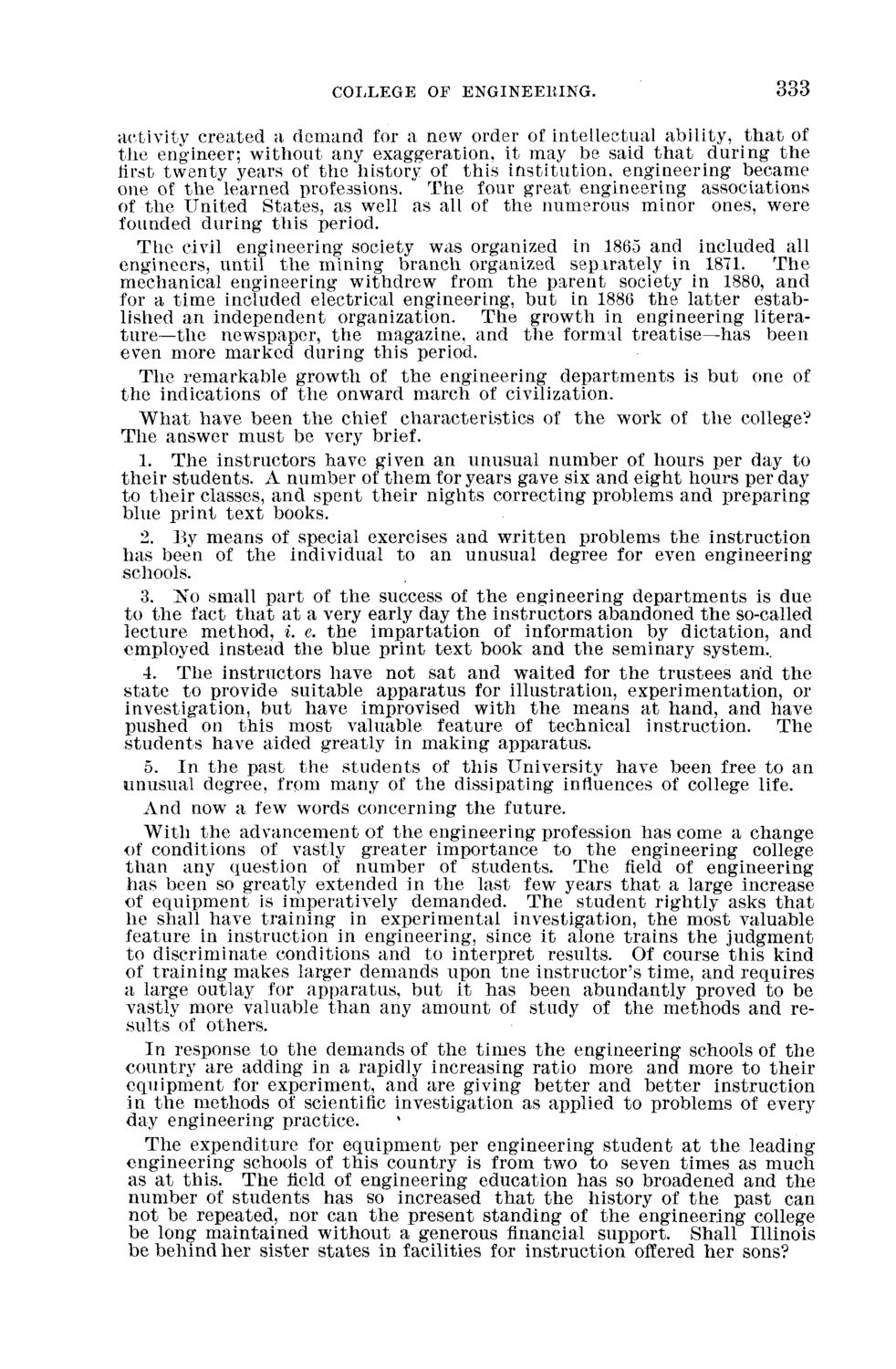| |
| |
Caption: Board of Trustees Minutes - 1894
This is a reduced-resolution page image for fast online browsing.

EXTRACTED TEXT FROM PAGE:
COLLEGE OF ENGINEERING. 333 activity created a demand for a new order of intellectual ability, t h a t of the engineer; without any exaggeration, it may be said t h a t during t h e first twenty years of the history of this institution, engineering became one of the learned professions. The four great engineering associations of the United States, as well as all of the numerous minor ones, were founded during this period. The civil engineering society was organized in 1865 and included all engineers, until the mining branch organized separately in 1871. The mechanical engineering withdrew from the parent society in 1880, and for a time included electrical engineering, but in 1886 the latter established an independent organization. The growth in engineering literature—the newspaper, the magazine, and the formal treatise—has been even more marked during this period. The remarkable growth of the engineering departments is but one of t h e indications of the onward march of civilization. W h a t have been the chief characteristics of t h e work of the college? The answer must be very brief. 1. The instructors have given an unusual number of hours per day to their students. A number of them for years gave six and eight hours per day to their classes, and spent their nights correcting problems and preparing blue print text books. 2. By means of special exercises and written problems the instruction has been of the individual to an unusual degree for even engineering schools. 3. ]S"o small part of the success of t h e engineering departments is due to the fact t h a t at a very early day the instructors abandoned the so-called lecture method, i. e. the impartation of information by dictation, and employed instead the blue print text book and the seminary system.. 4. The instructors have not sat and waited for the trustees arid the state to provide suitable apparatus for illustration, experimentation, or investigation, but have improvised with the means at hand, and have pushed on this most valuable feature of technical instruction. The students have aided greatly in making apparatus. 5. In the past the students of this University have been free to an unusual degree, from many of the dissipating influences of college life. And now a few words concerning the future. With the advancement of the engineering profession has come a change of conditions of vastly greater importance to the engineering college than any question of number of students. The field of engineering has been so greatly extended in the last few years t h a t a large increase of equipment is imperatively demanded. The student rightly asks t h a t he shall have training in experimental investigation, the most valuable feature in instruction in engineering, since it alone trains the judgment to discriminate conditions and to interpret results. Of course this kind of training makes larger demands upon tne instructor's time, and requires a large outlay for apparatus, but it has been abundantly proved to be vastly more valuable than any amount of study of the methods and results of others. In response to the demands of the times the engineering schools of the country are adding in a rapidly increasing ratio more and more to their equipment for experiment, and are giving better and better instruction in the methods of scientific investigation as applied to problems of every day engineering practice. The expenditure for equipment per engineering student at the leading engineering schools of this country is from two to seven times as much as at this. The field of engineering education has so broadened and the number of students has so increased t h a t the history of the past can not be repeated, nor can the present standing of the engineering college be long maintained without a generous financial support. Shall Illinois be behind her sister states in facilities for instruction offered her sons?
| |